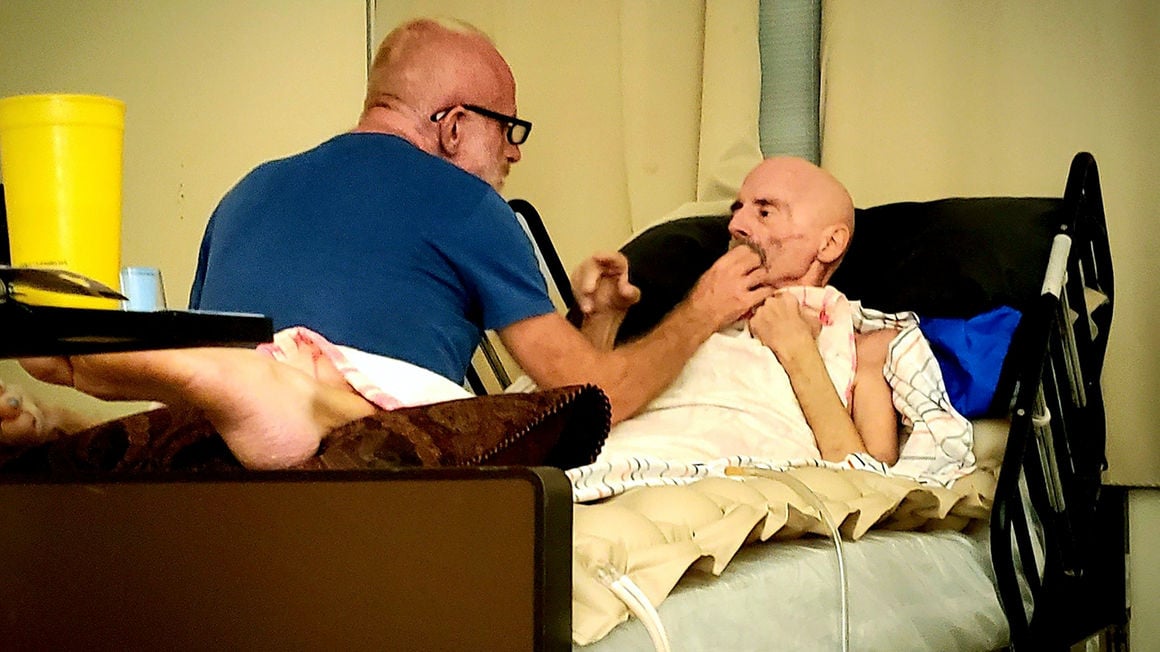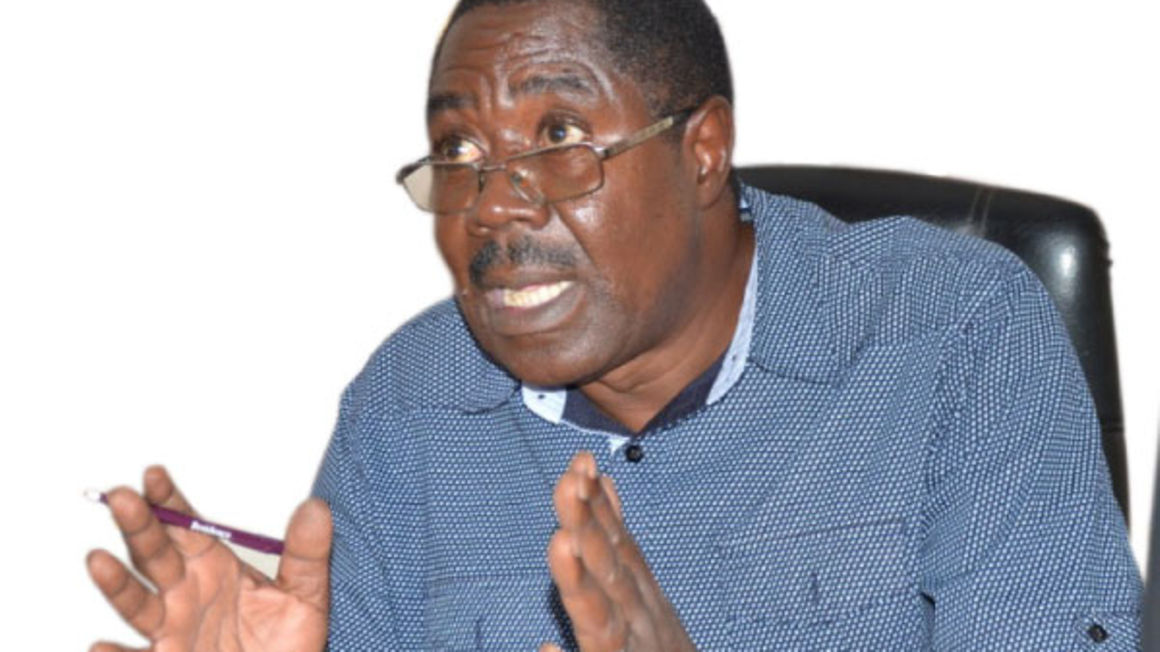By ISMAIL LADU
In April, the World Bank’s Development Committee and G20
Finance Ministers endorsed the Debt Service Suspension Initiative
following the World Bank and International Monetary Fund’s call to
grant debt-service suspension to the poorest countries to help them
manage the impact of the Covid-19 pandemic. The executive director of
Uganda Debt Network, Mr Patrick Tumwebaze told Prosper Magazine’s Ismail
Musa Ladu, in an interview that this move is only a drop in the ocean.
What is the rationale for current call for total debt cancellation?
We
appreciate that the previous escalating debt burden situation for low
income countries, including Uganda resulted into debt relief programmes
such as the Highly Indebted Poor Countries (HIPC) Initiative in
Financial Year 1995/96 and the Gleneagles- Scotland’s Multilateral Debt
Relief Initiative (MDRI) in Financial Year 2005/2006.
However,
development discourse of Low Income Countries (LICs), social protection
strategies and economic outlook are faced with a myriad of challenges,
given the global context of Corona Virus Disease (COVID-19) and the full
debt situation.
For this reason, it is proper to call for two-fold
approach. First, we are calling for total debt cancellation as opposed
to just debt service suspension of outstanding debt owed to the G20
countries, IMF, World Bank Group, regional banks as well as bilateral
creditors under Paris Club and Private external creditors under London
Club and China.
Secondly, we would want to see a 10-year action of
no-interest on new debts by Uganda; and low income countries. The
two-fold approaches would consign the LICs into more public expenditure
investments tagged to protecting the rights and social protection of the
citizens, economic recovery, improved healthcare and others.
We
implore the IMF, World Bank and G20 (world’s richest countries) during
2020 to coordinate a broad global participation of all global actors to
this two-fold approach to revive low income economies such as Uganda.
Are those the only reasons why Uganda is facing another debt burden?
There
are several reasons. According to the World Bank and IMF projections,
for every five shillings we generate as revenue, one shilling is paid to
interest on debt. That means the population is being deprived of
resources that would have been spent on service delivery.
We are
heading into a point where we shall be borrowing just to pay debt -
meaning, we shall be digging a pit to cover another pit. We don’t want
to be in such a situation.
In the recent past, the country has faced calamities such as floods,
floating islands, desert locusts, landslides and mudslides, Covid-19 and
other infectious diseases as Ebola, Yellow fever and Marburg. Such
calamities have compounded the pre-existing economic and healthcare
conditions.
The Covid-19 pandemic has resulted into increased
borrowing. So far, about 16 loans have been acquired for Covid-19 and
other interventions in the economy just between January and August 2020.
Those loans exclude the grants and supplementary budgets at the end of
FY 2019/20.
With Covid-19 alone, Uganda’s poverty levels between
January and August 2020 been elevated from 21 per cent to a projection
of 25 per cent, with over 2.6 million people likely to slip into poverty
by December 2020.
This will add onto the 8 million poor people
at pre-Covid-19 time; thus, totaling up to nearly 11 million people in
2020 alone. This figure could be higher if vulnerability numbers (due to
job loss, reduced salaries and wages, excess production capacity of
firms) were to be included.
The above is generally presented
across the low income countries while increasing inequalities and social
unrest that oftentimes affects the vulnerable poor, especially the
youth and women, across the six East African Community states and Africa
at large.
We have also seen some investment in infrastructure. Does it explain the debt situation?
You
are right. This is as a result of a global requirement which compels us
into investing in income generating projects and in this case, I am
talking about roads, electricity among other infrastructure projects.
Research has shown that for every one dollar invested, it generates $0.8
(Shs2,960) in economic activity. That is very dangerous. It shows that
up to 60 per cent of what you invested is wasteful expenditure.
According
to World Bank, Uganda loses about $300 million (Shs1.1 trillion) in
wasteful expenditure annually. When you consider this with the dwindling
revenue streams we are experiencing, you see that we are headed for
disaster.
Do we need debts, given their resultant challenges?
Even
the biggest economies borrow. USA owes China about $14 trillion. In
Uganda, we have a budget of about Shs45 trillion for 2021/22. We are
only able to raise about 40 per cent of that through locally mobilised
revenue. Remember more than half of that locally mobilised revenue is
supposed to pay debt. So we don’t have enough revenue yet we have a
budget to execute. Therefore, due to the pressure to deliver services,
we have to borrow.
To what extent has corruption undermined many debt relief gains?
According
to World Bank estimates, about 60 per cent of funds we get in loans are
wasted. We did a research that we are yet to publish and we found that
40 per cent of the loans for mostly roads were behind schedule.
This
is because of mainly corruption and issues around delay of counter
funding by government. Despite all that, including wanting transparency
and accountability from many of the respective governments and State
machinery especially in Africa in addition to abuse of public resources
by people who ought to know better, we believe debt cancellation remains
most viable move for economic recovery over the short-term, medium-term
and long-term.
How about the government overzealous appetite to borrow? Isn’t that a red flag?
Government
need to tame its appetite to borrow. When we closed 2019, the debt
levels according to the Finance Ministry were about Shs48 trillion. But
our budget is now about Shs45 trillion, meaning the debt we have so far
incurred has since surpassed our budget.
I am also afraid that by
close of the year, we may surpass the 50 per cent threshold because
currently, we are in about 46 per cent. As a country, we are treading on
a slippery ground. This is complicated by the fact that most of our
locally generated revenue goes to just debt servicing and not repaying
the debt. If we include the domestic debt situation in the equation,
then I fear the reading may not be nice.
However, the best
alternative is to put the borrowed money into ventures that generate
more money. This involves investing in productive sectors rather than
consumptive ones.
We have also seen that the government now
increasingly turning to commercial loans from private lenders as opposed
to concessionary loans. This is a dangerous road to take. It is very
difficult to convince say China and private lenders to drop their
demands because they are purely profit making organisations. But we
shall keep trying until we reach a consensus that is right and
beneficial to low income countries like Uganda.
Any challenges as you call for total debt cancellation?
The
size of public debt seems elusive. As we call for the debt
cancellation, there is need for computation of the full-scale of the
debt burden. Uganda’s public debt stock value, for instance varies from
the figures of Bank of Uganda, Ministry of Finance or even global
economic ranking entities like Fitch, Moody’s and Multilateral Financial
Institutions like IMF.
We implore the government to not only harmonise its debt stock figures but also be more transparent about the debt burden.
Uganda debt nears crisis level
https://www.monitor.co.ug/uganda/news/national/uganda-debt-nears-crisis-level-1932820
Wednesday September 02 2020
The government yesterday said Uganda’s public debt is projected to
hit 47.5 per cent of the Gross Domestic Product (GDP) which is
Shs150.267 trillion in the Financial Year 2020/2021 because of increased
borrowing and expenditure to counteract the Covid-19 pandemic on the
economy.
Experts say the projected rise in public debt implies
that the country is not collecting enough domestic taxes to meet the
ever increasing government expenditure, and that it also puts a lot of
pressure on the government to service the debt.
Speaking during
the fourth Economic Growth Forum in Kampala, the commissioner for
macroeconomic department at the Ministry of Finance, Planning and
Economic Development, Dr Albert Musisi, said the Covid-19 pandemic has
affected government’s fiscal position, with domestic revenues far below
target while spending needs increased.
“Widening of fiscal deficit
declined from 4.9 per cent in FY 2018/2019 to 7.2 per cent in FY
2019/2020 and 9.8 per cent in FY 2020/2021. Increase in the debt GDP
ratio, from 35.4 per cent in FY 2018/2019 to 40.2 per cent in FY
2019/2020. (Debt threshold is 50 per cent of GDP),” he said.
Dr
Musisi said revenue collections declined significantly especially in the
third quarter of Financial Year 2019/2020 due to the pandemic and
lockdown policies.
Despite the projected increase in public debt
over the years, he expressed optimism that Uganda’s public debt level is
still sustainable since it is below 50 per cent threshold.
On May 1, 2019 the International Monetary Fund (IMF) said Uganda
remains at low risk of debt distress, even though debt metrics have
deteriorated and one in five Ugandan shillings collected in revenue will
be spent on interest in FY2019/2020.
Dr Musisi said the debt is
still needed to boost the aggregate demand in the economy. Aggregate
demand is the total demand for goods and services within a particular
market at a given time.
He said there was a shortfall in domestic
revenue in the second quarter of the FY 2019/2020 and that in the third,
a shortfall of Shs589.66b was registered.
He added that in the
fourth quarter, the shortfall was Shs1.777 trillion, and that the total
shortfall in the FY 2019/2020 was close to Shs3.3 trillion.
Dr Musisi
said the shortfall in domestic revenue means there is a need for
borrowing to boost and meet increased government expenditure.
He
further stated that due to Covid-19 pandemic, Uganda has a decline in
Foreign Direct Investment by 40 per cent which is $278 million, in the
second half of 2019/2020 compared to the same period in 2018/2019.
“Decline
in tourism receipts by 62 per cent which translates to $365m in the
second half of FY 2019/2020 compared to the same period in 20198/2019.
However, decline in remittance is much lower than earlier projected.
Remittance fell by 11 per cent ($64 million) in the second half of
2019/2020 compared to the same period in 2018/2019,” he said.
In
the short term, Dr Musisi said, there is a need to increase domestic
revenue collection and improve efficiency in public expenditure, reverse
the trend in the debt level and the fiscal deficit should return to the
EAC level of 3 per cent.
In the medium term, Dr Musisi said, Uganda’s economy is expected to recover and grow at 6 to 7per cent.
The
Secretary to the Treasury, Mr Keith Muhakanizi, said there is need for
debt relief for developing countries following the negative impact of
the Covid-19 pandemic.
“Therefore, the objective of this year’s
conference is to identify actionable policy interventions to mitigate
the negative impacts of the Coivid-19 as well as recommend medium term
strategies to support economic resilience and recovery,” he said.
Mr
Muhakanizi said before this shock, Uganda had registered a significant
economic growth rebound since 2016, pointing out that in FY 2019/2020,
growth was 6.8 per cent.
He said this followed government adopting
a number of policy interventions suggested in the first three Economic
Growth Forums to address some of the key development challenges that
threatened the country’s long-term growth trajectory.
“The
interventions included raising agricultural productivity; spurring a
process of structural transformation, raising public savings and
investment; and addressing labour force skills deficit, among others,”Mr
Muhakanizi said.
He added: “However, with the onset of Covid-19,
economic growth is estimated to have fallen drastically to 3.1 per cent
in FY2019/2020 and is projected to remain at the level in FY2020/2021.”
The
Secretary to the Treasury said they have identified three key policy
solutions: assessing the global and domestic impact of Covid-19 on
enterprises and future prospects, understanding the impact of Covid-19
on enterprises and households, government’s policy response and
identifying medium term strategies for key growth sectors.
The
commissioner General of Uganda Revenue Authority (URA), Mr John
Musinguzi Rukoki, told Daily Monitor that the projected increase in
public debt to 47.5 of the GDP means Uganda is not collecting enough
domestic revenue.
“If the projected level happens that means we
are below the threshold of 50 per cent by just 2.5 per cent. The level
at which we are borrowing is three times the level we should be
borrowing,” he said.
He added: “Our mission at URA is to collect
enough domestic revenue (taxes), which is better for us than the debt.
It may take some time for us to collect enough domestically but we have
to do it to avoid a rise in public debt.”
Mr Musinguzi said they are using domestic revenue mobilisation strategy to increase the level of domestic tax collection.
The
National Planning Authority (NPA) executive director, Dr Joseph
Muvawala, said the problem is not the increase in debt levels to GDP but
the capacity to pay it and what the money being borrowed is used for.
“The
issue is your capacity to pay back the debt not the rise in debt. The
USA has debt which is more than 100 per cent of the GDP but they have
the capacity. Right now there is no choice about borrowing because the
government needs the money to boost the aggregate demand.”
The
former Deputy Governor Bank of Uganda, Dr Louis Kasekende said the
impact of Covid-19 will be severe on Uganda’s economy since many sectors
of the economy have been affected.
“However, based on what the
Ministry of Finance has said that there is recovery which has been
registered in June and July which is good for us, we still need to boost
the aggregate demand in the economy. This can only happen when the
government increases spending in the productive sectors,” he said.
The
senior research fellow at Economic Policy Research Centre (EPRC), Corti
Paul Lakuma said the increase in debt level means Uganda has borrowed
some money to combat the impact of Covid-19 which will have to be paid
in the future.
“However, some of the debts that have been
borrowed from the IMF and the World Bank are concessional loans which
attracts no interest rates unlike the non-concessional loans,” he said.
Mr
Lakuma said there is some money that has been realigned in the World
Bank and the IMF for debt relief which is good for developing countries
like Uganda.







